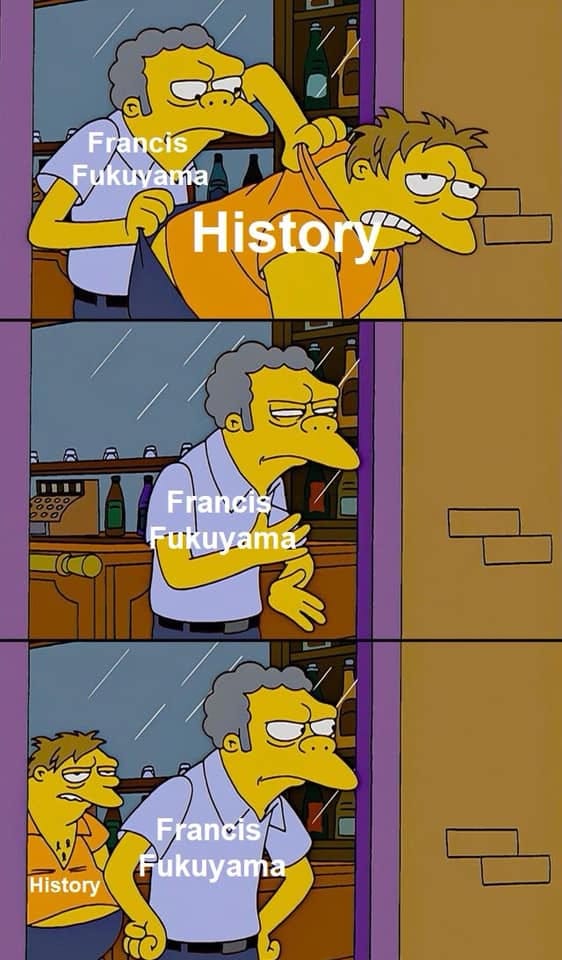Six months in a leaky boat
The tyranny of distance didn't stop the cavalier, so why should it stop us?
When I was a young boy
I wanted to sail around the world
That's the life for me, living on the sea
Spirit of a sailor, circumnavigates the globe
It’s difficult to come up with words to describe what we’re all going through right now. The current global crisis bears the obvious parallels to the 1918 H1N1 flu epidemic, what would come to be unfairly known as the “Spanish Flu”, except that that crisis took place in a world very different from our own in a few important ways — medical science has made tremendous strides to our advantage, but increases in travel and mobility work to our current disadvantage. The virus of a century ago attacked a civilization that vaguely suspected its existence but had no understanding of its nature; our pathogenic nemesis of today may be novel, but its already-identified molecular shape decorates the background of newscasts every day.
The lust of a pioneer, will acknowledge no frontier
I remember you by, thunderclap in the sky
Lightning flash, tempers flare,
'round the horn if you dare
Grasping for a framing device, some have tried to compare our current moment to the days after the September 11th, 2001 terror attacks. The impulse behind doing so is obvious — certainly it’s the only other event of any comparable disruption in my lifetime, but even then it falls deeply short. For as terrible and shocking as the events of 9/11 were, and for as devastating and long-lasting their consequent impacts were, they were localized events. Many of us were scared in places we had no reason to be. Wherever you are today, we’re facing some degree of the same problem all at once.
I just spent six months in a leaky boat
Lucky just to keep afloat
In 1982, the experimental rock band Split Enz released the single “Six Months In A Leaky Boat”. The song’s title is a reference to the ordeal British settlers took on in traveling to the band’s native New Zealand, but the song is generally understood to recount frontman Tim Finn’s mental health struggles following the collapse of a short-lived marriage the prior year.
I’ve been listening to the song a lot the last week, and it’s a fitting soundtrack for our current moment. We’re in a collective mental health crisis: socially isolated by medical necessity, facing both the hypothetical and real damages of a crisis with no clear end in sight. Millions of jobs have disappeared overnight — whole sectors of the economy and of daily life are blinking out like a rolling blackout. Everyday actions we barely considered a month ago have become fraught with concern — Is it worth that trip to the grocery store? Will they have what I need? Will I get sick, or get someone else sick?
The subtext of the song feels especially relevant now, but I can’t help but feel like the metaphor it’s housed within is perfect for where we’re at, too.
We’re on a long sea voyage right now, leaving behind the world we know. We face a long period of uncertainty and peril. It’s a journey that will someday end, but we can’t be sure of when or where we’ll land. Many of us have a journey like this in our ancestries — some were taken for fortune and opportunity, but many more were taken out of desperation, out of the hopes for a better life. Many, of course, were taken not by choice at all, but by the compulsive forces of evil. For whatever reason these journeys were launched, the passengers on each faced the prospect of rebuilding lives on the other side, of recreating a society on a new shore.
It’s easy to look foolish making broad declarations about history without the perspective allowed by distance. In 1992, American political scientist Francis Fukuyama famously declared that humanity’s sociocultural evolution was complete, with liberal democracy and free-market capitalism having won out as the final form of human government in his book The End of History and the Last Man, a proclamation whose eventual accuracy was perfectly captured in one of my favorite memes ever:

With that buyer-beware out of the way, it’s possible that we’ll look back on this moment as an inflection point in our social history. The cruelty, inequity, and simple unsustainability of so many things we take for granted is being exposed right now, and it’s going to get worse before it gets better. We’re faced with a reckoning about what we consider essential — both in our own daily actions and in the people we don’t often realize or admit we are relying on. Our shared duty to one another is being made starkly more apparent not just as an issue of morality but of collective survival.
Those journeys of the past helped create the world we know today, for better and for worse. Some found new freedoms, new opportunities and new fortunes; others found that those successes were built on their suffering. We didn’t ask to be on this journey today, but we’ve set off on it already. We won’t be able to bring everything with us, and we don’t know when we’ll land or even if we’ll survive the trip. We can only scan the horizon for shore and hope the water at our feet doesn’t get deeper in the meantime.
When we land, let’s hope we can built a better world than the one we leave behind.
The tyranny of distance, didn't stop the cavalier
So why should it stop me, I'll conquer and stay free
Ah c'mon all you lads, let's forget and forgive
There's a world to explore, tales to tell back on shore
I just spent six months in a leaky boat
Six months in a leaky boat
— Scott Hines (@actioncookbook)



Also see Stephen Crane's short story "The Open Boat."